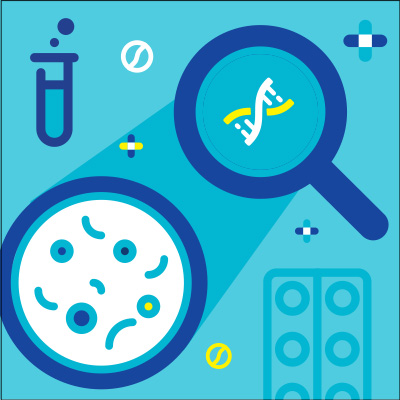Parasite’s trick has potential to calm inflammatory bowel disease
Lead researchers: Professor Aisling Dunne and Dr Hannah Fitzgerald, Trinity College Dublin (TCD)
2 min read - 7 Feb 2023

The problem
Inflammatory bowel disease (IBD, which shows up as ulcerative colitis or Crohn’s disease) affects around 20,000 people in Ireland and three million in Europe. Current generation IBD medicines often don’t work well in the long-term and they bring side-effects, so we need new medicines to calm the body’s immune system and stop it from damaging the bowel.
The project
Research at TCD explored ways to switch on a natural anti-inflammatory mechanism in the body called the heme oxygenase system. It looked at how a parasite, Trypanosoma brucei (which causes African sleeping sickness), switches on this system to dampen down its host’s immune responses.
The outcomes
- The researchers identified a new type of chemical from the parasite that switches on the heme oxygenase system
- In laboratory tests, the parasite chemicals calmed inflammation in cells that came from patients with IBD
- The chemicals can now be tested further as possible anti-inflammatory medicines of the future.
Aisling Dunne, Professor in Neuroinflammation at TCD, says: “The project identified new drug candidates for IBD. A key advantage of these is that they are affordable and they can be commercially synthesised. While further study is required to unlock their full therapeutic potential, if successful, it paves the way to investigate their effects in a range of other inflammatory and autoimmune conditions.”
“Parasite’s trick has potential to calm inflammatory bowel disease” is part of a wider collection of success stories across four themes from the most recent version of the annual publication Health Research in Action.
2 min read - 7 Feb 2023



